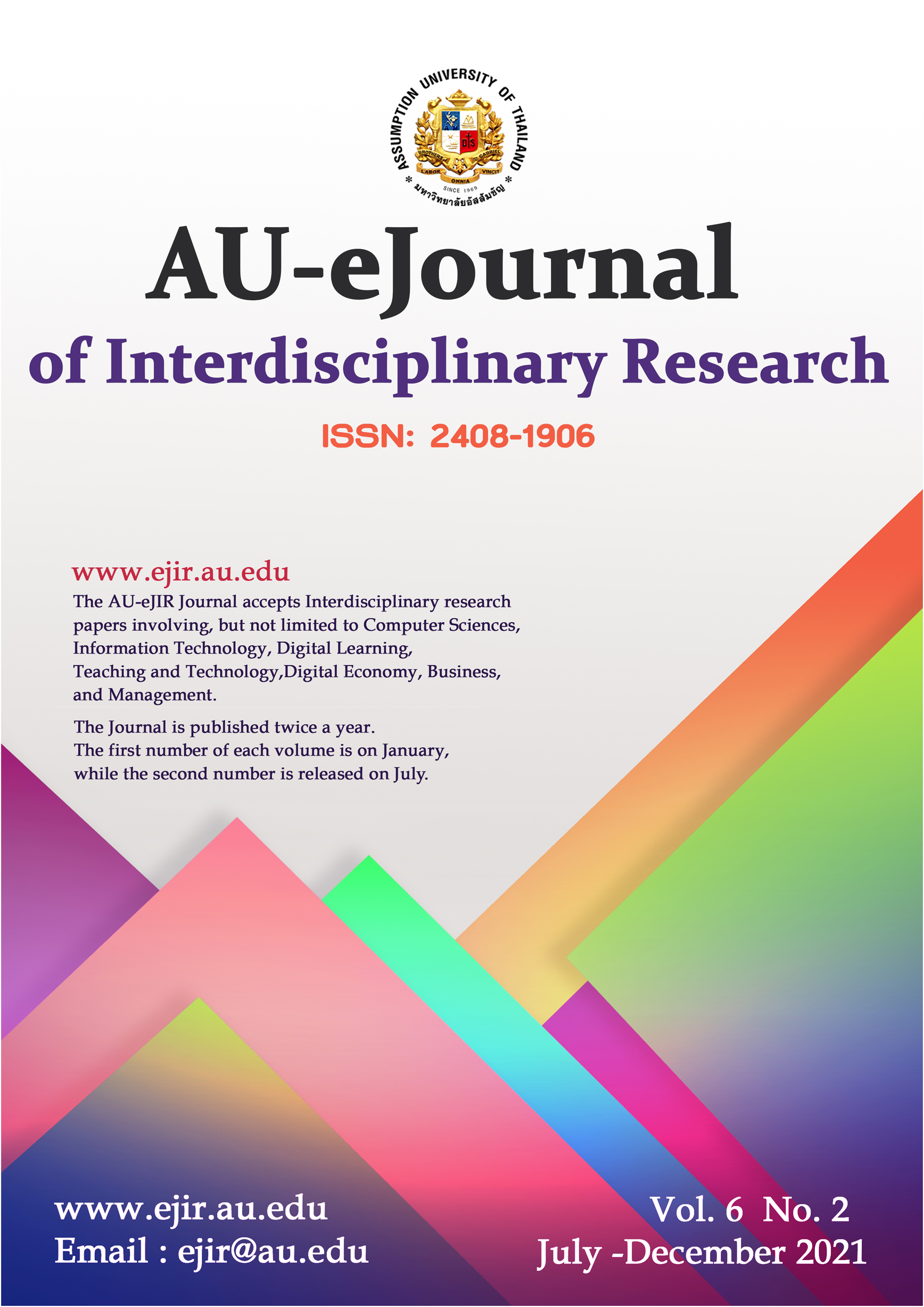COST-BENEFIT ANALYSIS OF SOLAR ROOFTOP SYSTEMS TO ACHIEVE THE ALTERNATIVE ENERGY DEVELOPMENT PLAN: AEDP
Abstract
This study aims to analyse the investment worthiness of residential solar rooftop installation for self-generated electricity and to investigate the feasibility of implementing the government policy for solar-powered houses to achieve success in energy consumption as specified in the Alternative Energy Development Plan 2018–2037 (AEDP 2018). A cost–benefit analysis was conducted by calculating the net present value (NPV), internal rate of return (IRR) and discount payback period (DPB) and analysing the sensitivity based on primary and secondary data. The study compares the investment worthiness of three solar rooftop systems, on-grid, off-grid and hybrid off-grid systems (with both lithium-ion and dry batteries). The findings show that on-grid solar rooftop systems offer the best value for investment while there are risks involved in investing in the off-grid and hybrid off-grid systems with dry batteries as these could lead to large losses due to their high cost and short lifespan. However, replacing dry batteries with lithium-ion ones will create better value for solar rooftop investment. The analysis of the secondary data can be summarised as showing that following the government policy in encouraging the installation of on-grid solar rooftop systems among households with monthly electricity usage of over 500 kWh cannot achieve the AEDP 2018’s goal of 10,000 MW power consumption from household on-grid solar rooftop systems by 2037 unless the government sectors instead support and push a policy for the installation of off-grid solar rooftop systems with lithium-ion batteries among households with a minimum monthly electricity usage of 150 kWh.
References
Belyadi, H. Fathi, E. & Belyadi, F. (2017). Hydraulic Fracturing in Unconventional Reservoirs: Theories, Operations, and Economic Analysis. Massachusetts: Gulf Professional Publishing.
Denpaiboon, C. (2017). The Study Project on Housing Demand Forecast of Thailand (2017-2027). Bangkok: Research Institute and consultancy, Thammasat University.
Ebrahimi, M. & Keshavarz, A. (2015). Combined Cooling, Heating and Power: Decision-Making, Design and Optimization. Amsterdam: Elsevier.
Energy Policy and Planning Office, Ministry of Energy of Thailand. (2019). Thailand Power Development Plan 2018–2037: PDP 2018. Retrieved from http://www.eppo.go.th/images/POLICY/PDF/PDP2018.pdf
Feangthee, A. Mankeb, P. & Suwanmaneepong, S. (2019). The financial feasibility analysis of rice transplanting machine business service in Uttaradit province. King Mongkut's Agricultural Journal, 37(3), 559–569.
Goel, M. (2016). Solar rooftop in India: Policies, challenges and outlook. Energy & Environment. doi: 10.1016/j.gee.2016.08.003.
Gude, G. (2018). Renewable Energy Powered Desalination Handbook: Applications and Thermodynamics. Oxford: Butterworth-Heinemann.
Jiravusvong, P. (2013). A Study of Using Electricity Costs from Solar System for Household Appliances (Master's Thesis). Retrieved from http://libdoc.dpu.ac.th/thesis/147901.pdf.
National Statistical Office of Thailand. (2016). 2015 Household Socio-economic Survey – Economic Survey Whole Kingdom. Bangkok: Statistical Forecasting Bureau, National Statistical Office of Thailand.
National Statistical Office of Thailand. (2018). National Statistical Office of Thailand reveals the 2018 Household Basic Information Survey. Retrieved from http://www.nso.go.th/sites/2014/DocLib14/News/2561/07-61/N25-07-61-1.pdf.
Paltrinieri, N. & Khan, F. (2016). Dynamic Risk Analysis in the Chemical and Petroleum Industry: Evolution and Interaction with Parallel Disciplines in the Perspective of Industrial Application. Oxford: Butterworth-Heinemann.
Pojsiri, A. (2016). Cost Analysis of Solar Rooftop Project for Small Building (Master's Thesis). Retrieved from http://digital_collect.lib.buu.ac.th/dcms/files/56920291.pdf
Power Economics Department, Provincial Electricity Authority. (2018). Study of Residential Electricity Usage Pattern. Bangkok: Power Economics Department, Provincial Electricity Authority. Retrieved from http://peaoc.pea.co.th/loadprofile/files/13/dt13180111.xls.
Thailand Board of Investment. (2016). Thailand's solar rooftop market poised to take off. Thailand Investment Review, 26(1).
Thongsuk, S. & Ngaopitakkul, A. (2018). Performance and Economic Analysis on Rooftop PV System. Srinakharinwirot University (Journal of Science and Technology), 10(9), 157-169.
Tiwngam, W. (2015). Estimating the Economic Worthiness of Solar Photovoltaic Rooftop
Project for Residential House (Master's Thesis). Retrieved from http://ethesisarchive.library.tu.ac.th/thesis/2015/TU_2015_5204030133_3860_3087.pdf.





